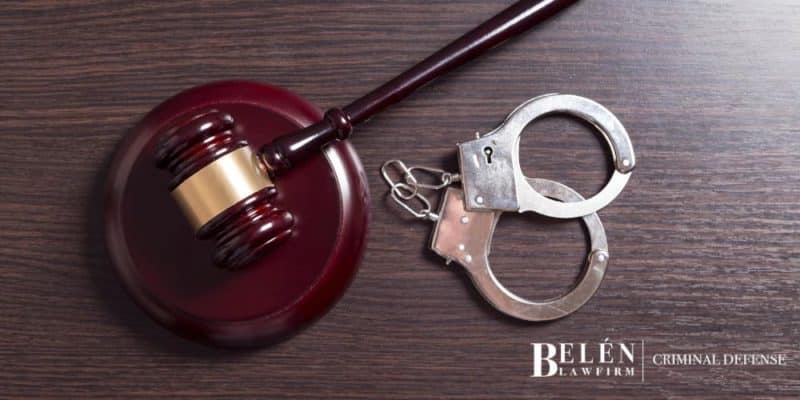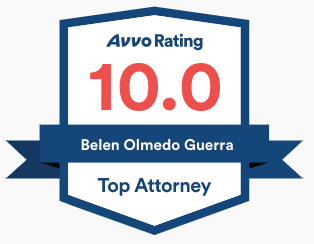Criminal convictions can be a life-changing incident. The consequences of a criminal conviction often last long after the jail time is served and fines are paid. For instance, some types of convictions can result in a loss of civil rights and prevent you from getting professional licenses. What’s more, any prior convictions can result in harsher punishments and extended jail time in future convictions.
At Bélen Law Firm, we know how damaging a criminal conviction can be. But all hope is not lost. Under Arizona law, some people can apply to set aside a criminal conviction. Set-asides in Arizona can restore civil rights and give you a fresh start, but they don’t permanently seal your record. However, in 2023, the law will expand to allow new individuals to seal their convictions and have a chance to start over.
A Phoenix criminal defense attorney at Bélen Law Firm can help you determine if a set aside in Arizona is right for you. Call us today at (602) 715-0908 to schedule a free case evaluation.
What Does it Mean to Set Aside a Criminal Record?
Under Arizona’s current laws, having a conviction set aside is a way for citizens who have served their time to get their rights back. A set aside may not erase the arrest or conviction from your record, but it can let future employers and landlords know that the crime was in the past and that you have paid all your dues.
ARS § 13-905
ARS § 13-905 outlines the requirements for setting aside a judgment. The statute states that the court must consider multiple factors when it comes to setting aside a conviction. This includes:
- The nature and details of the offense
- Completion of conditions of probations and sentencing
- Any prior convictions
- Status of victim restitution and victim’s input
- Length of time since sentence completion
- Age at time of conviction
Setting aside a criminal conviction will not erase the conviction from your record, but it does open up opportunities for people with a criminal record.
Benefits of a Set Aside
A criminal conviction brings far more consequences than just jail time and fines; it can completely change your life and derail your future. A felony conviction suspends certain civil rights, including the right to vote, the right own a firearm, and the right to run for public office. A felony conviction can also prevent someone from getting scholarships, certain jobs, and it can even limit housing opportunities.
A set aside can help restore some of these rights. When a criminal conviction is set aside, the arrest and conviction will still appear on your public record. However, after a set aside is granted, your public record is adjusted to reflect that you have served the time and paid the fines for the crime. A set-aside conviction can still be used as a prior criminal conviction in court, but it can show employers and landlords that you have completed all conditions of your sentence.
Is a Set Aside the Same Thing as Expungement?
Many other states call this process an expungement or record sealing. Arizona law doesn’t technically allow expungements, unless they are for simple possession of marijuana, but a set-aside is the next best thing.
Expungement vs. Set Aside
Simply put, set-asides are a mere asterisk on your record with a note saying you’ve paid your dues. An expungement can seal your record and keep the crime in the past.
An expungement essentially erases a criminal record. More specifically, the arrest record and conviction are sealed during the expungement process and can only be accessed by certain agencies of law enforcement. This means your conviction will not be seen by landlords, employers, or the general public. Arizona courts currently only allow expungement for certain marijuana-related offenses. This is because the recent passing of Proposition 207 legalized the use of recreational marijuana. Marijuana expungement is a way for people to seal criminal records for offenses that are now legalized in Arizona.
A set-aside, on the other hand, indicates that you have served the required time for your criminal offense. Your criminal conviction will still appear on a background check, but the set-aside will also appear. This will let prospective employers, landlords, and other entities know that you have served your time and paid restitution for the criminal offense.
Fortunately, the current set-aside process in Arizona will see drastic changes in 2023.
2023 Expungement Laws
The passing of Senate Bill 1294 in July of 2021 will open up a whole new door for those with a criminal conviction. Some law enforcement agencies will still be able to access sealed records, but a sealed conviction will not appear on a routine background check. This means that you can answer ‘no’ to any questions that ask whether you have previous criminal convictions on most employment applications.
ARS § 13-911
Arizona Revised Statute 13-911 is the official statute based on SB 1294. This statute allows a person to file a petition to seal all records related to a criminal offense, including the conviction, judgment, and arrest. The applicant has to wait a certain period of time after the completion of their conviction. The time period is:
- Ten years for a Class 2 or 3 felony
- Five years for a Class 4, 5, or 6 felony
- Three years for a Class 1 misdemeanor
- Two years for a Class 2 or 3 misdemeanor
- Additional five years for prior felonies
Can My Offense Be Expunged?
The application to set aside a criminal offense or felony conviction is complicated. When you apply for a set-aside or expungement, the judge in your case will weigh multiple factors. If you were on probation, your probation officer may have to testify that you were in compliance with all conditions of probation. The judge will also factor in any prior or subsequent convictions on your record.
However, certain serious offenses such as violent felonies cannot be set aside or expunged from your record.
Eligibility Requirements
For a criminal conviction to be set aside in Arizona, the person convicted has to meet certain eligibility requirements. This includes:
- Waiting the appropriate time after the conviction occurred (up to 10 years)
- Complete payment of victim restitution
- The conviction is not a serious offense or violent felony
Which Crimes Cannot be Set Aside?
Under both the current and new set aside/expungement laws, certain criminal offenses are not eligible. The law describes these exceptions as a “serious offense” or “violent or aggravated felony.” These offenses include:
- Any dangerous offense against children
- Convictions involving children under the age of 15
- Crimes involving a deadly weapon
- Sex crimes
- First and second-degree murder
- Aggravated assault resulting in serious physical injury
Do I Need a Lawyer to Get a Criminal Record Set Aside?
The application to set aside a criminal conviction can be complex, especially to someone unfamiliar with the process. The new expungement laws will change the way this process works, so it’s important to have someone who understands the new legislation by your side. Having a Phoenix attorney like Belén on your side during this overwhelming time can give you peace of mind.
If you tackle this process on your own, any mistake in the application can result in the court denying your request to set aside a conviction. If the court denies your request, you can request a reconsideration. Unfortunately, you have to wait at least three years after a denial to apply for reconsideration. Having an experienced criminal defense attorney with you through this process can decrease the likelihood of your application being denied.
Call a Top Phoenix Criminal Defense Attorney at Belén Law Firm Today
If you or a loved one has been convicted of a criminal offense in Arizona, all hope is not lost. You probably know the consequences of an Arizona conviction, but it’s possible to move on from these offenses with the help of a set aside. In addition, the new expungement laws will open up the process to many individuals who are burdened with a criminal record. This can be the fresh start that many people need to thrive.
At Bélen Law Firm, you can trust that our criminal defense team has the knowledge and experience necessary for a positive outcome in your case. Bélen Olmedo Guerra has experience in both state and federal court. For more information about whether or not you qualify for expungement, call us today at (602) 715-0908. Our 24/7 legal team is ready to help you and answer any questions you may have.
























